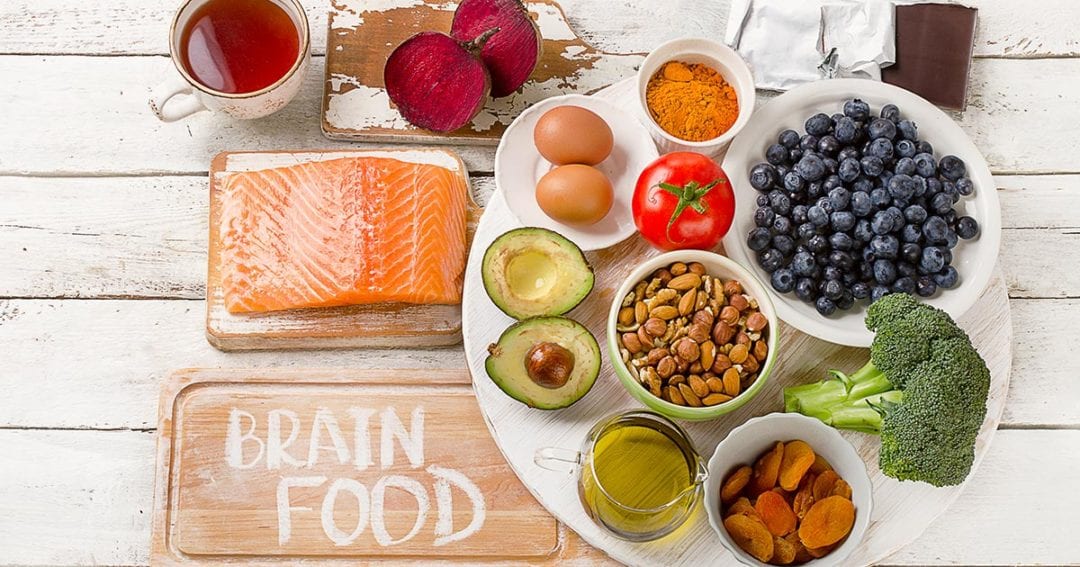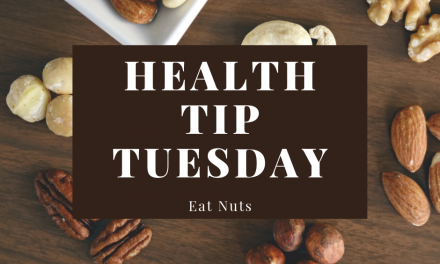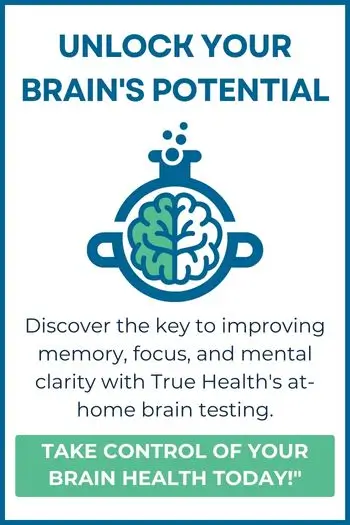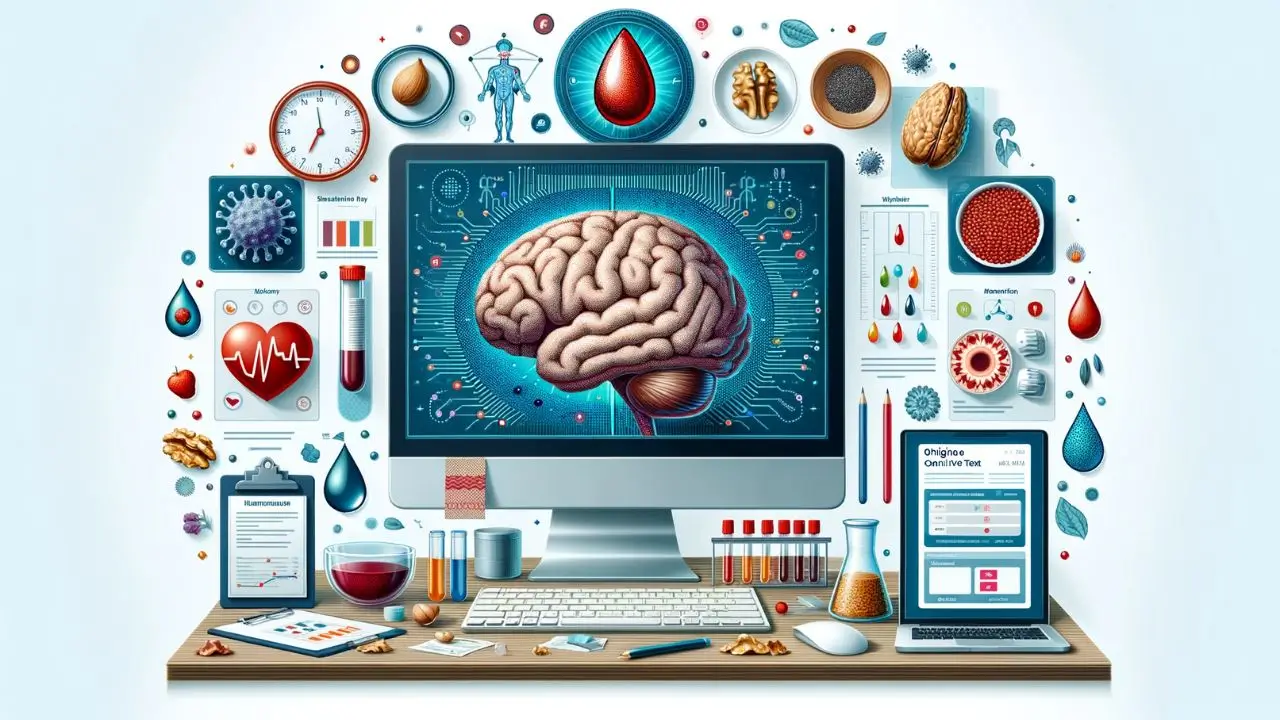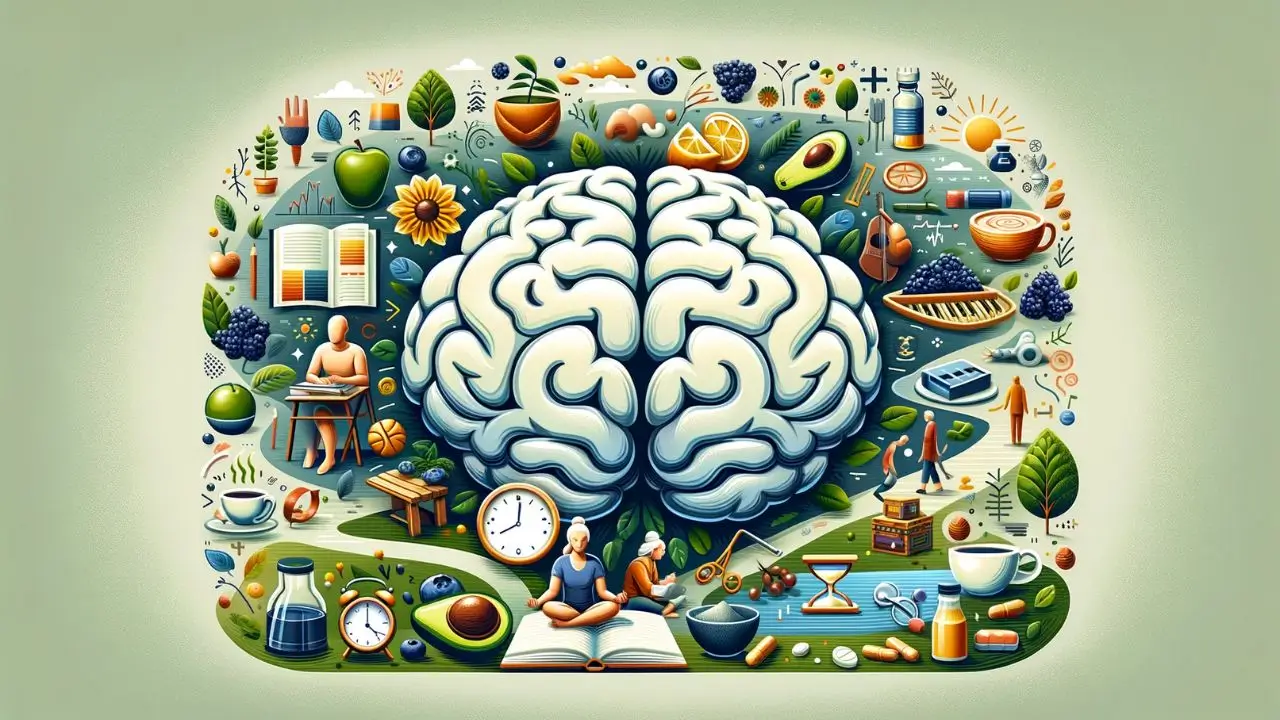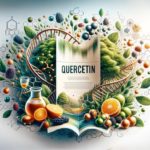Most people think that there is no way to optimize their brain health, and you have to accept that dementia, ADHD, slower learning, decreased short term memory, increased stress & anxiety, accelerated aging, and slow processing speeds is just a normal part of life. But that’s not true. In fact, here are 3 brain health diet tips that help you optimize your brain health.
Diet Tip #1: Eat Fewer Carbs
The #1 thing you need to understand with this is most people consume 60% of their daily intake in carbs which is our Standard American Diet. 10-20% carbs are the range we prefer for optimal brain health. So, here’s what this really means: the more carbs you eat the higher your glucose and insulin levels will be which is damaging to your brain and your entire body. This diet tip is important because you will not be able to eat 60% of your diet in carbs/grains and expect good brain health. Our current food pyramid has grains at the bottom. That is 9-11 servings of grains/carbs per day. That is a lot of carbs and most people consume processed carbs. Some of you may opt for what seems is a better choice eating whole grains, quinoa or amaranth however these grains have a fairly high glycemic index level which means your blood sugar is going to go up after eating them. When you consume high carb diets you are more at risk for diabetes, if you get diabetes you are twice as likely to get dementia or Alzheimer’s. Next, you need to get serious to start eating for your brain. Stop eating all sources of gluten, including whole-grain and whole-wheat forms of bread, noodles, pasta, cereal, baked goods. Watch out for foods marked “gluten-free”, as the gluten is replaced with other ingredients which equally raise blood sugar enormously such as corn, rice, potato, or tapioca starch or cornmeal. Other carb related foods are all of the forms of processed carbs such as sodas, candies. You should start looking at foods that have a low glycemic index. The glycemic index shows you the effect of foods on your blood sugar levels. The lower the number the better the food is for you since it isn’t spiking your blood sugar levels. Examples of good carbs are leafy greens, collards, spinach, broccoli, kale, cabbage, onions, mushrooms, cauliflower, asparagus, garlic, bell peppers, cucumbers, tomatoes, zucchini, lemons, and limes.
Diet Tip #2: Stay Away From Bad Fats And Eat More Healthy Fats
Ignore this advice at your peril: most people consume 20% of their daily intake in fats which is our Standard American Diet. 50-75% healthy fat intake is the range we prefer for optimal brain health. Did you know your brain is 70% percent fat? Truth: if you are not including quality fats as part of your daily dietary intake, you are starving your brain of important nutrients it needs. Quality fats are the building blocks of your brain. If you are not getting enough good fat, your brain is not going to have the ability to repair, regenerate, perform, let alone function at an optimal level. This is important because if you are eating a low-fat diet you are putting yourself at risk for developing Alzheimer’s/dementia. A symptom as simple as brain fog could be an early indicator that you’re headed down the path towards Alzheimer’s/dementia already. Have you ever walked into a room only to forget what you were going in there for? This too is an early sign that you’re heading down the same path. Once you have dementia and/or Alzheimer’s, there is no cure. However, they are completely preventable by how you live your life. Start right now! And that leads us to the fact that you should stop eating bad fats and trans fats that have no health benefits. In fact, they create inflammation, increase LDL cholesterol, decrease HDL cholesterol, and contribute to insulin resistance. Get rid of any commercial brand of cooking oil such as corn, vegetable, canola, soy, cottonseed, peanut, safflower, grape seed, sunflower, wheat germ oils even if they are organic, margarine and vegetable oil. About 80% of trans fats come from processed foods, fast food, primarily snack foods and desserts, so read your labels. Stock your kitchen with these good fats instead, coconut oil, pasture-fed butter, tallow, ghee, Extra-Virgin Olive Oil, Avocado oil, almond or coconut oil, avocados, coconuts, nuts and nut butter and seeds, flaxseed, sunflower seeds, pumpkin seeds, sesame seeds, and chia seeds. Remember 50-70% of your meal needs to be of a good fat source.
Diet Tip #3: Avoid Processed Food
The core idea students, athletes, moms, business professionals, and seniors need to grasp with this diet tip is processed or convenience foods are foods that have been altered or deliberately changed or come ready to eat by the time they come to you. In Feb NBC reported that people who eat more highly processed foods such as chicken nuggets, instant noodles, etc. have a higher risk of cancer. The most important thing to get with this is according to Medical News Today, “Processed foods are usually loaded with sugar and high fructose corn syrup which contain no nutrient value, can affect metabolism, can lead to insulin resistance, increased cholesterol. high triglycerides, and accumulate in the liver. This will help you because processed foods are filled with ingredients that cause us to become addicted. One of these addictive ingredients is sugar which is 8 times more addictive than cocaine. Processed foods also contain artificial coloring’s, artificial preservatives and artificial sweeteners. The keyword here is artificial. Artificial means man-made not food in its natural state. At this point, you should realize that eating processed foods may seem easier but it is a quick way to lose your health. Take control now by getting rid of all forms of processed carbs, sugar, and starch: corn, yams, potatoes, sweet potatoes, chips, crackers, cookies, pastries, muffins, pizza dough, cakes, doughnuts, sugary snacks, candy, energy bars, ice cream/frozen yogurt/sherbet, jams/jellies/preserves, ketchup, processed cheese spreads, juices, dried fruit, soft drinks/soda, fried foods, agave, sugar (white and brown), corn syrup, all packaged foods labeled “fat-free” or “low-fat” and on and on. Start today, your health is worth it!.
